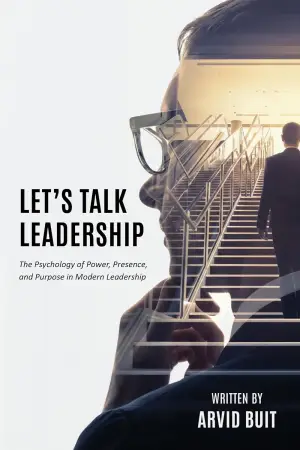
16 Jun Book Review of Magic Words
Book Review: Magic Words by Jonah Berger
When I first picked up Magic Words by Jonah Berger, I was intrigued by the premise: the idea that language, the very tool we use to communicate every day, could wield almost magical power to influence decisions and behaviors. As someone who has always been fascinated by the art of persuasion—whether through a well-timed compliment or a persuasive piece of writing—I felt drawn to explore the hidden science behind our words.
In this enlightening read, Berger provides a treasure trove of linguistic strategies that promise to help us harness the power of language in our everyday lives. The book opens with a fascinating assertion—using the word "recommend" instead of "like" can enhance the chances of someone following your suggestion by a whopping 34%. It sets the stage for a deep dive into how specific word choices can transform outcomes, from selling ideas to resolving conflicts.
One of the key themes that struck me was the power of activating a sense of identity. Berger shares compelling research about how framing tasks in terms of identity—like calling children “helpers” instead of asking them to “help”—can significantly increase their willingness to engage. This notion resonated with me, especially as I reflected on how identity influences our choices and behaviors. It’s a gentle reminder that our words can shape not just our conversations but also our self-perceptions and those of others.
The author’s writing style is engaging and accessible, striking a perfect balance between scholarly insight and conversational tone. I found myself nodding along as Berger illuminated how speaking with confidence—eliminating filler words and using definitive language—can create a compelling presence. There’s something refreshing about his pragmatic tips, such as the idea that speaking in the present tense makes statements feel more relevant and impactful. His approachable prose turns what could be dry statistical evidence into a lively conversation about the nuances of language.
One memorable part of the book, for me, was Berger’s exploration of emotion in language. He emphasizes that words like “delicious” or “electrifying” in restaurant reviews not only evoke curiosity but can also drive reservations more effectively than more technical descriptors. This reminded me of the way emotional storytelling stitches together the fabric of our shared human experience, compelling and connecting us.
Berger’s insights don’t just apply to corporate or persuasive settings; they permeate personal relationships as well. The chapter on asking good questions particularly resonated with me, as it highlighted how genuine curiosity fosters deeper connections. I couldn’t help but think of my own conversations and the power of follow-up questions in sustaining engagement.
As I closed the book, I felt empowered and inspired. Magic Words isn’t just a guide on communication strategies; it’s a celebration of language and its untapped potential. I believe this book would be particularly valuable for those in leadership roles, educators, marketers, or anyone keen to improve their interpersonal skills. Beyond practical insights, it offers us a heartfelt reminder of how our tapestry of words can influence beliefs, inspire actions, and foster deeper connections.
If you’ve ever felt the weight of words on your tongue or wondered how to communicate more effectively, I highly recommend diving into this captivating exploration of the magic that lies within our everyday language. It’s a journey that might just transform how you see and use words in your own life.









